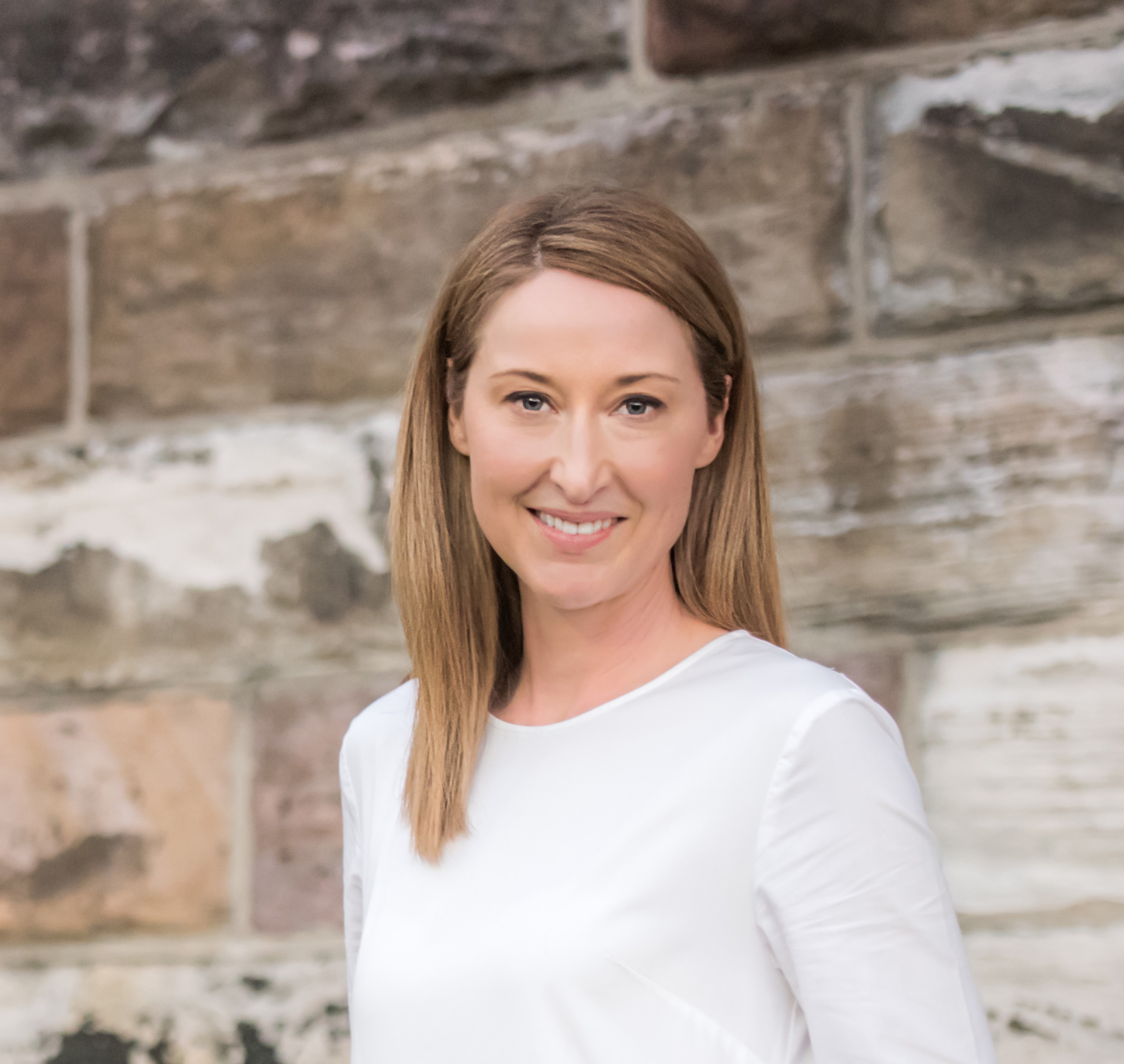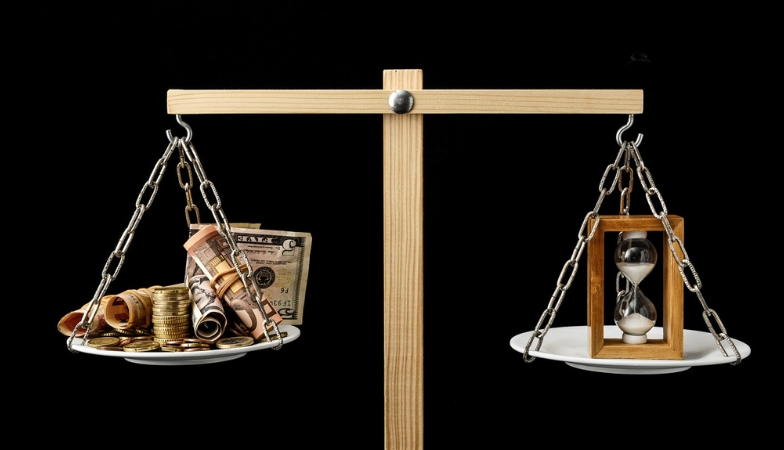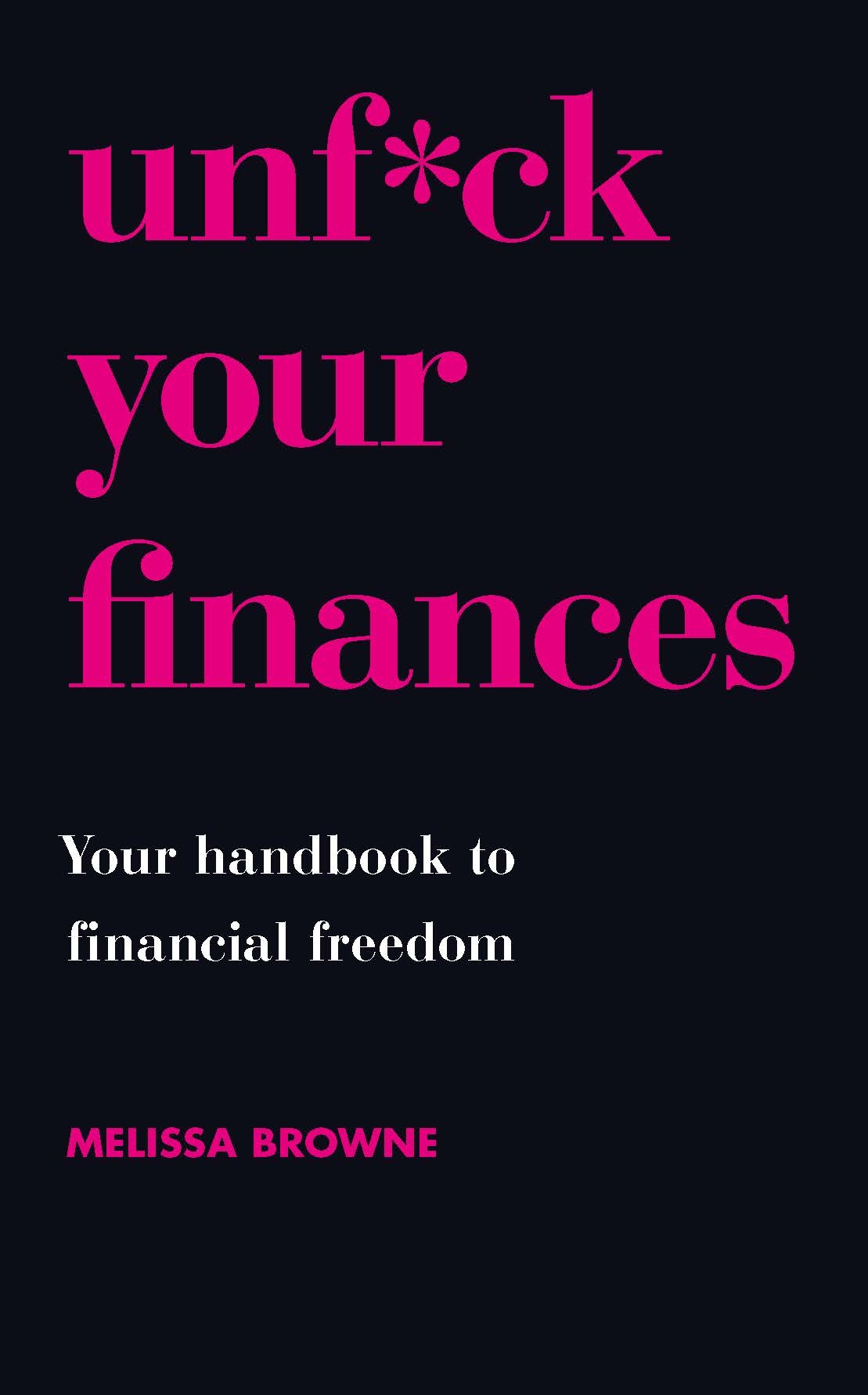Who isn’t looking to save money after the Christmas season? Money expert Melissa Browne spends her life advising 28-48 year-olds how to financially ‘grow up’ – these are her steps to financial freedom
It is abundantly clear to me, after more than a decade dealing with women and their finances, that many of us feel awkward and uncomfortable talking and even thinking about money.
Note, I didn’t say we’re bad with money – instead many of us believe the lie we’ve been sold that we’re frivolous spenders who can’t deal with investing and this lack of confidence is costing many of us our financial security.
many of us believe the lie we’ve been sold that we’re frivolous spenders who can’t deal with investing
This lack of confidence coupled with an unwillingness to talk about money often leads to women not having a great relationship with money. I mean, it’s difficult to have a relationship with someone that you’re not willing to talk to or think about.
Which is why for many of us, our so-called relationship with money has turned toxic. Let’s be honest, if money was a bad boyfriend (or girlfriend) we would quickly kick it to the curb!
The problem is that, unlike an inconsiderate partner, money is something we’re stuck with. But unlike a normal relationship, we can dictate terms. That’s why, instead of working on our relationship with money, I believe many of us need to start by taking a break from it.
1. Have an ‘it’s not you, it’s me’ type trial separation
Now, I appreciate this is easier said than done. After all, if we compare money to another of our daily requirements, food, we can see another, often toxic, relationship.
Many of us spend a lot of our time thinking about food: what we’re going to eat, when we’re going to eat it, and whether we can start eating now. In most Western countries this has resulted in larger and larger waistlines. Or we spend our time trying not to think about food. Which means food can be just as big a problem for the intentionally underweight as the overweight.
We reward ourselves with food when we’re good. We deny ourselves when we’re bad. We’re constantly trying to break up with it. Yet, if we’re honest, we behave like little children let loose in the snack cupboard most of the time.
Little wonder we don’t have a great relationship with food.
Yet there is a movement to reign it in. To break up with the food we’ve been eating. To forge a new relationship with real food that’s good for us.
People like Jamie Oliver and his Ministry of Food talk about getting back to basics when it comes to food and many of us have listened. We’re mindful about where our food has come from, we want to know how the animals we eat have been treated, we’re conscious of what we put into our bodies and we’re careful to eat food that is free from chemicals, preservatives and other nasties.
I believe it’s time we broke up with money too.
That’s because we need to stop how we’re currently thinking and behaving and begin a new relationship with money. One we’re not ashamed of. One we’re not tempted to leave at home in a cupboard and hope it won’t escape and embarrass us.
How do you get over being bad with money, break up with it and start a new and healthy relationship? Here are my top tips to help you do just that.
2. Start a financial detox
If you’re going to break up with someone you need space. It’s no different with money. That’s why I recommend a 30 Day Financial Detox so you press reset and start to realise how you act, think and behave with money which will hopefully change your behaviour after the 30 days.
A financial detox is simply 30 days of buying nothing new or essential. And no, shoes are not essential. This is something I recommend everyone do twice a year so that you can have a bi-annual reset. Afterwards? Well, hopefully the following tips help to explain what comes next.
3. Understand what you believe
Sometimes we can be in a relationship and it’s only afterwards that we realise the twisted stories we’ve accepted as fact.
This is all about the money stories and messages you’ve picked up from family, peers or the media. They might be stories such as ‘women are bad with money’, ‘all women are spenders’, ‘all debt is bad’, ‘a man should always look after a woman’ or ‘women don’t make great investors’.
It’s time to figure out what you believe when it comes to money and most importantly, whether these messages are serving you.
You could start telling yourself far more helpful money stories that start to shape your behaviour such as ‘money is a learned skill and I’m going to choose to do something about it’, ‘I’m the author of my financial story and am going to start designing the life I want’.
Or perhaps you might start looking for inappropriate money messages from the media (trust me, they’re everywhere) or even family and saying ‘stop it’ to them and reframing them for yourself or your family member instead.
4. Understand how you feel
You may have heard about emotional eating but emotional spending is just as bad for your health. Moments like, ‘it’s been a tough month, I deserve something pretty’ or ‘I work hard, I deserve a £100,000 car’ or ‘my child won’t succeed without us spending £40,000 per year on schooling’.
You might feel you deserve it, but you also need to afford to pay for it. Of course, a treat that you’ve saved for, that you’re prepared to forego something for or that you’ve prioritised your spending for is completely okay. After all, I spend more than the national average on shoes but it’s about realising you can’t have it all and planning for your ‘treats’ or your spending choices (tip 8 will help with this).
5. Work out your goals
At some point, a couple will work out together where their relationship is heading – it’s the same with money.
Start by figuring out what your goals are in life – I like to reframe this as, what life do you want to design as opposed to what are you currently defaulting to.
I appreciate it’s tougher to look any further than three years ahead but I think three to five year and 12 month goals are essential.
Once you have these goals, don’t just use them to line the budgie cage. Pop them up somewhere where they’ll motivate you every day. It might be where you brush your teeth, the screen saver on your computer, in a money journal or as the screen saver on your phone.
6. Work out a plan
Sometimes goals and values can seem so far removed from our current day that it’s easier to just buy a cocktail and continue as you are.
Instead, work out how much money it would take to reach that plan and how long it would take. If your goal means you need £10,000 in 12 months’ time that means you need to save £200 per week.
7. Become a conscious consumer
Working out a plan is great but unless you’re monitoring how you’re going, it’s too easy to go off-track. Take time every month to check how you’re going, see if you’re on track and make any necessary adjustments.
It’s always easy to lose a sneaky kilo that sneaks on rather than dealing with 20kgs so consider a regular money weigh-in.
So for example if your 12 month goal is to pay off your £12k in credit card debt or to save £12k, this would mean every month saving £1000. This is a physical amount you can check in on every month to make sure you’re on track.
If you fall off the wagon or by month six only have £5,000 saved of paid off, then you might consider some ways you can make up the £1,000.
This might include taking on a second job, starting a side hustle, becoming an Uber driver or even selling some of your stuff that is in your home or wardrobe that you no longer use.
8. Understand your values
To transfer your feelings from money onto something worthwhile, make a list of what you value in life. Maybe it’s freedom, family, security, significance or loyalty.
Once you’ve worked out your values, look at your goals and work out if they fit with your values. If they don’t make adjusts until they do.
9. Set up multiple bank accounts
If you’re in a bad relationship you need to face what’s going on. It’s the same with money. Sure, you could work out a plan, set a budget and get super tough on yourself.
But research tells us that doesn’t work for many of us, in the same way diets don’t work. Instead, set up multiple bank accounts (everyday account, bills account, savings account and a fun account at the very least), figure out how much you should be sending to each one every pay period and then automate these transfers and stick to the accounts you should be spending from.
My tip is to figure out the amount you need for the bills account first, then your savings account next (or if your goal is about paying off credit card debt then cut up your card and this becomes your savings account).
Next is your fun account and finally your everyday account. If you’re living at home your saving amount should be large – at least 50% but if you’re out of home it may only be 10-20%. What is important is that it lines up with tip 6.
If you don’t have enough money for what you want then it’s time to figure out if your goals are worth it, adjust your goals or find more money (see the previous tip for ideas). It’s about spending and saving well rather than being ultra-restrictive.
10. Seek help from a relationship counsellor (aka money expert)
Sometimes relationships just end up toxic and messy and we can’t extract ourselves. It can be the same with money.
You might have a go at the above and it just doesn’t work for you or you might know yourself enough to know you need help from the start.
Seek out great advisers (like me) who can help you break up with money and who will stay in your corner as your coach until you do.
You might ask for a referral or check the FCA register to start but my suggestion is that you ‘date’ a few before you decide on one.
No, I don’t mean take them for cocktails but ask them questions such as ‘do you receive a commission for products you recommend?’ My preference for a financial advisor is one who gives independent advice which means they won’t receive kickbacks or commissions.
11. Remove yourself from temptation
I don’t have chocolate in the house because I have absolutely no willpower. It’s the same with money. If you know you never window-shop but always window-buy then don’t window-shop.
If you know that brunch with girlfriends always turns into a shopping trip, suggest you move to a retail free location instead. If you know that you’re a hoarder and you’ll keep piling up money in a low interest account rather than investing and doing something better with it then share your plan with a good friend and ask them to keep you accountable.
12. Consistently monitor, gauge, adjust and track
Establishing a healthy respect for money is a great thing to do. But it shouldn’t be done once, big pat on the back and you never do it again.
So that you don’t end up back in the same place you started (or worse) this should be a lifetime quest to not just keep money under control but to use it as a tool to create in your life more freedom, empowerment and options.
My tip is to use a tracking app on your phone such as MINT so that you can start to monitor your spending and saving habits and then check in weekly to find out how you’re going.
If you can’t cope with weekly at the very minimum it should be monthly.
13. Talk about it
Often there is shame, vulnerability and awkwardness around conversations about money. How we remove that shame and start to rewrite a new financial story is to start talking about it.
Using the above tips as a guide, start a new conversation about money with your family, peers and friends so money becomes just another thing we talk about.
How do you start a money conversation without judgement and prying into what salary your friends make?
Maybe start with the tips here? Ask whether they think they’re good, bad or ok with money? What are their financial goals? What apps are they using, how are they setting up bank accounts and how are they investing?
It’s all about removing the judgement and starting to have curious money conversations that are no different from the many other subjects we talk about everyday.
14. Start getting curious about money
Talk is great but we don’t want to be all talk and no action. Start investigating things you might not know about such as shares and stocks.
Sure, you might be put off from buying a house and be tempted to throw your hands in the air and not bother saving but you can invest for as little as 500 pounds in the sharemarket.
However, just because you shop at Marks and Spencer doesn’t mean you should necessarily buy shares in them.
There are many trading platforms that will allow you to set up ‘dummy share portfolios’ so you can practise holding shares before you buy so you can start to understand risk and how the share market works.
Or you might purchase in a fund such as an ETF (Exchange Traded Fund) or managed fund where your money is pooled with other people and it simply invests in the UK’s top 100 stocks.
Warren Buffet (world’s most successful investor) once said if he died to pop all his money in an ETF so if the most successful investor suggested this cheaper, passive alternative to sharemarket investing then that may be a good place to start and you can start investing, again with as little as £500 which you can buy directly through a trading platform.

Unf*ck Your Finances: Your Handbook to Financial Freedom by Melissa Browne is available from
Amazon (£12.99 Hardcover, £8.99 on Kindle)
More Healthista content:
5 ways supermarkets make you spend more money
Can’t save money? These 5 beliefs could be holding you back
12 signs you are in an abusive relationship and what to expect when you leave
Like this article? Sign up to our newsletter to get more articles like this delivered straight to your inbox.





























































